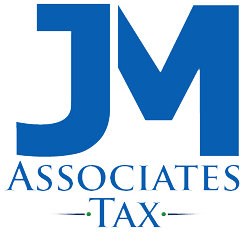Tax Resolution
If you find yourself facing the IRS collections process with all the penalties and consequences that it ensues, J&M Tax is ready to help you.
There are many options and strategies that can be used to solve your tax problem. At J&M Tax we have years of experience on our side that allows us to evaluate the ideal course of action that will best bring you relief.
Below are just some of the vast resolution options that we have available for you:
Tax Relief Process...
- Consultation
- Investigation
- Evaluation
- Negotiation
- Relief!
Audit Representation
Tax Audit Representation, or Audit Defense is when J&M Tax will stand in on behalf of a taxpayer during an IRS or state income tax audit. The IRS and all states allow a taxpayer to have an authorized representative, one who has specific credentials and permission to practice. This includes attorneys, CPAs, and enrolled agents. The representative will develop which strategy to use, will assist in preparing all documents needed, and handles correspondence or meetings on behalf of the taxpayer.
If you receive a letter from the IRS, do not ignore it as it will not just disappear. Don't panic though, there are steps to be taken and the issue may not be as large as you may think.
Most of the time, that letter is simply asking you for more information about your tax return. They may just need certain forms proving your income and/ or deductions. If you are not sure what they need, can't fond the information that they are asking for, or are called in to meet with an agent, you might want to call a professional. You will need to grant power of attorney to your representative so that they can handle everything while you take a step back.
An audit is usually very specific and you will want to make sure that you give over all the necessary information without giving anything extra. A good tax attorney will be skilled at knowing exactly how to deal with the IRS and developing the case to make a settlement easier. Once the agent assesses any taxes and penalties that you may owe, this can be appealed. They may also be willing to cut a deal with you so that the case won't drag on any longer.
J&M Tax has represented many tax audits, both personal and business. We will provide you with expertise and professionalism, and work with you to resolve your audit. Most audits can be done through correspondence and this allows us to handle your case, regardless of your location.
Criminal Tax Defense
In a case where you are being investigated for suspicion of tax fraud, you will want a defense professional to represent you. This is not something that you would want to face alone as the risk is too high. You will want the right representative by your side to guide you through the process, giving you the best chance of avoiding any criminal charges.
Dealing with the IRS
When looking for a favorable tax resolution, your chance of success is heavily impacted by your communication with the IRS.
You will want to remain friendly, patient, and most importantly, calm. Although this can be frustrating and hard to accomplish, confrontation and complaints will not help your case and may in fact do the opposite.
Make sure you notice the IRS of any change of address so that you receive any important notices to ensure that you do not miss deadlines. Once you understand precisely what a letter means and what they are asking for, always respond promptly.
Most people will barely have any experience dealing with the IRS and will know very little about the details of the tax code. The IRS however, is well versed in every aspect of the tax code and usually always have the upper hand. You will want to make sure that you have your own experienced defense on your side.
Innocent Spouse Relief
In some cases, the IRS will slap you with a tax debt that is actually the responsibility of your spouse or ex-spouse. If you were not aware of this and had no part in it, you can request "innocent spouse relief" that will have the tax debt and penalties removed from your record.
IRS Tax Discharge
In certain cases, delinquent taxes can be dismissed through a bankruptcy. There are two types of bankruptcy available: Chapter 7 and Chapter 13. The rules to discharging delinquent tax debt through bankruptcy are very complex. There are specific criteria that must be met and one of our professionals can assist you with the specifics.
IRS Tax Expiration
The IRS has a Statue of Limitations of 10 years to collect tax debt. This initiates on the date that the tax is assessed and the notice letter was sent to you. If the collection date has expired, you can possibly have your debt eliminated. Although in some cases, the statue of limitations can be extended.
Tax Levy Relief
When you are issued a notice that the IRS intends to levy and seize your assets, you have 30 days to respond. Your best bet is to work out an agreeable solution with the IRS to avoid the levy completely. There are different options to consider.
1- Pay Your Debt In Full.
If you are able to raise the amount owed- including penalties and interest- within a reasonable period, the IRS will release its levy immediately. (Typically this means 120 days)
2- Negotiate An Installment Agreement.
You can arrange to pay monthly payments until your debt is paid. Setting up a plan would also release a tax levy immediately.
3- Demonstrate Undue Hardship
The IRS may release a tax levy if you can prove that this would cause Financial hardship and you would need to proved financial information. If you can not pay at all, you may be placed in a status of "Currently Not Collectible" where you would remain indefinitely but would need to undergo reevaluation every year. If you were to remain in this status for 10 years, the statue of limitations may run out and your tax debt would be forgiven.
4- File An Offer In Compromise.
A tax levy can also be releases if you obtain an Offer In Compromise. Read More
5- Negotiate A Release Of The Levy.
You ma be able to negotiate directly with a field agent to release a levy. If you demonstrate that you wish to sell real estate or a valuable asset but can not do so with the levy in place, you can request a release. In this case, it is understood that some or all of the proceeds of the sale would go towards your tax debt.
Stop Wage Garnishment
When the IRS or State can not collect back taxes, they begin to seize assets. Through a levy they can legally seize bank accounts, property, vehicles, ect., and sell it so as to satisfy the debt owed. If after all that, the debt is still not completely satisfied, they can start taking part of your paycheck. Wage Garnishments are another form of tax levy in which case the IRS can seize portions of your paycheck until the debt is satisfied.
Wage Garnishments can sometimes be removed by setting up installment plans that can be much less than the wage garnishment amount. J&M Tax can negotiate to lift levies and garnishments.
Payroll Tax Debt Relief
If you own or have owned a business with employees, and owe employee withholding taxes, you need to resolve this straightaway! It is in such cases that the IRS is most aggressive. If Payroll Taxes are not paid, you are putting yourself and your business at risk.
If you do not resolve this issue, the business may be forced to close and all assets can be seized to satisfy the debt. Even if the business is shut down, you are still responsible for the taxes and your personal finances can be at risk. Speak to an expert at J&M Tax who can discuss your best options.
State Tax Issues
When owes to the IRS, they usually also owe state tax as well. State Collection authorities can be just as aggressive as the IRS, if not more. They can cause untold financial hardship and dealing with them is equally important.
Negotiation & Settlement
Getting anxiety at the mere thought of negotiating with the IRS? Rest assured, this is what we do best.
A Tax Settlement is an arrangement that the IRS finds acceptable where a taxpayer will be allowed to retire an outstanding tax debt for less than the original amount owed, or to set up another method for them to collect the taxes over time. If you owe taxes but can not pay, you may be able to pay a reduced amount or at least arrange to make payments over time. In some cases, your tax obligation may be pushed off or forgiven completely. Depending on your financial situation and the amount you owe, there are different options to consider:
Partial Payment Settlement Agreement.
In certain cases, you may be able to negotiate a partial payment settlement. This is where you would only have to pay a reduced amount over a shorter period of time. You would need to provide financial proof together with an explanation and if approved, your debt will be lowered.
Offer In Compromise
In some cases, it may be nearly impossible for you to pay off your tax debt, even when using one of the installment plans. The IRS may then be willing to lower your bill considerably, depending on your financial situation. It is important to note that these requests are not accepted too often. Speak to a reliable professional who can assist you should this apply to you ,and file all the paperwork correctly to ensure the best results.
There are 3 reasons hat a tax debt can be legally compromised:
1- Doubt as to liability- Doubt as to weather the tax was assessed correctly.
2- Doubt as to Collectibility.- Doubt that the taxpayer could ever pay the amount owed. This is the section used most often and you would need to prove financial hardship.
3- Effective Tax Administration- The tax amount due is correct but there is an exceptional circumstance. This is most often used by disabled or elderly taxpayers.
Tax Penalty Abatement
In many cases, the penalties and interests can become quite large. We may be able to get those penalties removed and may even be able to get past penalties/ interests refunded. You must show reasonable cause for an abatement or adjustment. J&M Tax can help determine f this may be an option for you.
Currently Not Collectible Status Or Financial Hardship
If you are absolutely unable to pay your IRS debt, you can file for "currently not collectible" status. If your case is found to be not collectible, the IRS will hold off on the collection process. This may be if your wages cover just your living expenses so there is no wages they can garnish and you have no assets worth levying. You will have to provide financial statements every year to show that you are still unable to pay otherwise the collection process will resume. However, should the 10 year statue of limitations expire while you have not collectible status, they will no longer be able to collect the debt permanently.
Waiting Out The Statue Of Limitations
You may be able to wait out your tax obligations and have them wiped from your record, depending on your case. The statue of limitation for federal income taxes is 10 years, barring any fraudulent activity. You must make sure to calculate correctly though as the timer does not begin until taxes are assessed by the IRS and certain actions/ situations will pause the clock as well. If you contemplate using this strategy, it's best you consult with a professional who is well versed in how to proceed and can determine the correct dates.
Getting Started...
Fill out the form and one of our tax experts will get in touch with you shortly.

Copyright © 2016 J&M Tax. All Rights Reserved.

